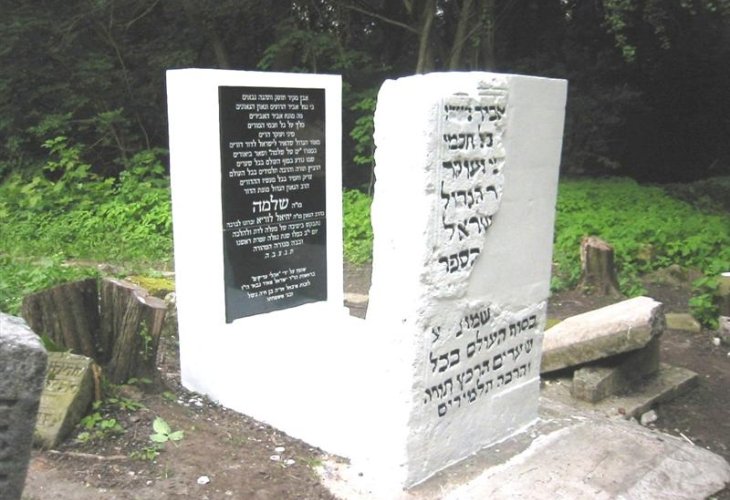Jewish Law
Jewish Burial, Cremation, and the Afterlife: What Happens to the Soul According to Judaism
A comprehensive guide to traditional burial, cremation, body donation, and how each impacts the soul in Jewish belief
- Dudu Cohen
- |Updated

A visit to a cemetery always leaves us awestruck. All the honor a person accumulated in their lifetime — every bit of money, love, success, suffering, emotions, and thoughts, ultimately condenses into a cold, heavy stone monument. According to Jewish belief the soul continues on to other realms, but here on earth only a silent, weighty reminder remains.
“According to the Talmud,” explains Rabbi Yitzchak Batzri, “burial is meant to preserve the dignity of the deceased, so the person is not left degraded in public view. But the primary reason is that the moment a person is buried in the ground, all their sins are atoned for. Kabbalah teaches that when a person’s body decomposes, harsh spiritual judgments are nullified. Therefore, it is important that the body decomposes. The fact that a human is created from earth and returns to it — this itself brings atonement.”
What about someone who requested that their body be cremated?
“According to our faith, in the World of Truth, the soul will be burned and revived again and again.”
What about donating the body to science, so that at least something beneficial comes from it instead of it simply decomposing?
“That is considered a degradation of the deceased. We must understand that halachically, our body is not ours. It is a vessel that God entrusted to us. If the body is donated to science, the soul suffers and is tormented during the experiments performed on it. It has no rest.”
What happens to people whose burial place is unknown — such as fallen soldiers? Do they suffer as well?
“If a person is not buried because of circumstances beyond their control, it is very painful for the soul. The Torah says, ‘Do not let his body remain unburied.’ However, the Talmud teaches that if someone was not buried because their body was not found, or was not eulogized, or was dragged off by an animal, or rain fell upon them — it is considered a good sign for the deceased. This means they are granted atonement and enter directly into Gan Eden (Paradise).”
What about secular burial without purification rituals, without sanctifying the cemetery grounds, and without reciting Kaddish?
“This is a significant loss for the deceased, because purification and atonement are not done for them. They lose their final opportunity to depart this world with spiritual cleanliness, leaving them vulnerable to harmful spiritual forces. People choose non-Jewish burial because they do not know that there is life after death. They don’t realize that the soul needs prayers and Kaddish to be elevated.
The Talmud says that after Avshalom was killed, his father King David prayed, and through the power of those prayers, he brought him into Gan Eden. This teaches us that through the power of Kaddish, the soul can be elevated to very high levels. When people give this up, they lose something incredibly precious.”
Rabbi Yitzchak Gabay offers another reason for traditional Jewish burial: gratitude to the body, which served the soul throughout its lifetime. “The soul is a part of God, and therefore we must honor it — and also the physical vessel that housed it,” Rabbi Gabay explains.
“During the Resurrection of the Dead, the bodies will rise as well, because they, too, played a spiritual role in the soul’s elevation.
We must remember that even the body possesses an element of sanctity, and it must not be disrespected. Therefore, the body must be buried.”
What about someone who was not buried — like a person who drowned at sea or died in a fire?
“They, too, will merit resurrection. Not all bones need to remain; the body will regrow from the luz bone even if it has turned to ash.
There is a profound purpose in returning to earth, as God told Adam: ‘For dust you are, and to dust you shall return.’”

